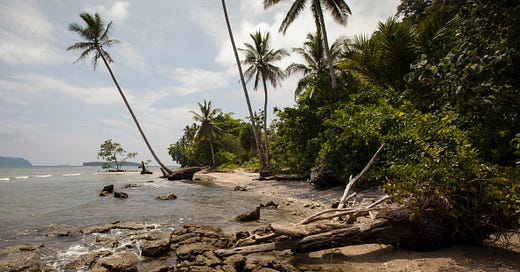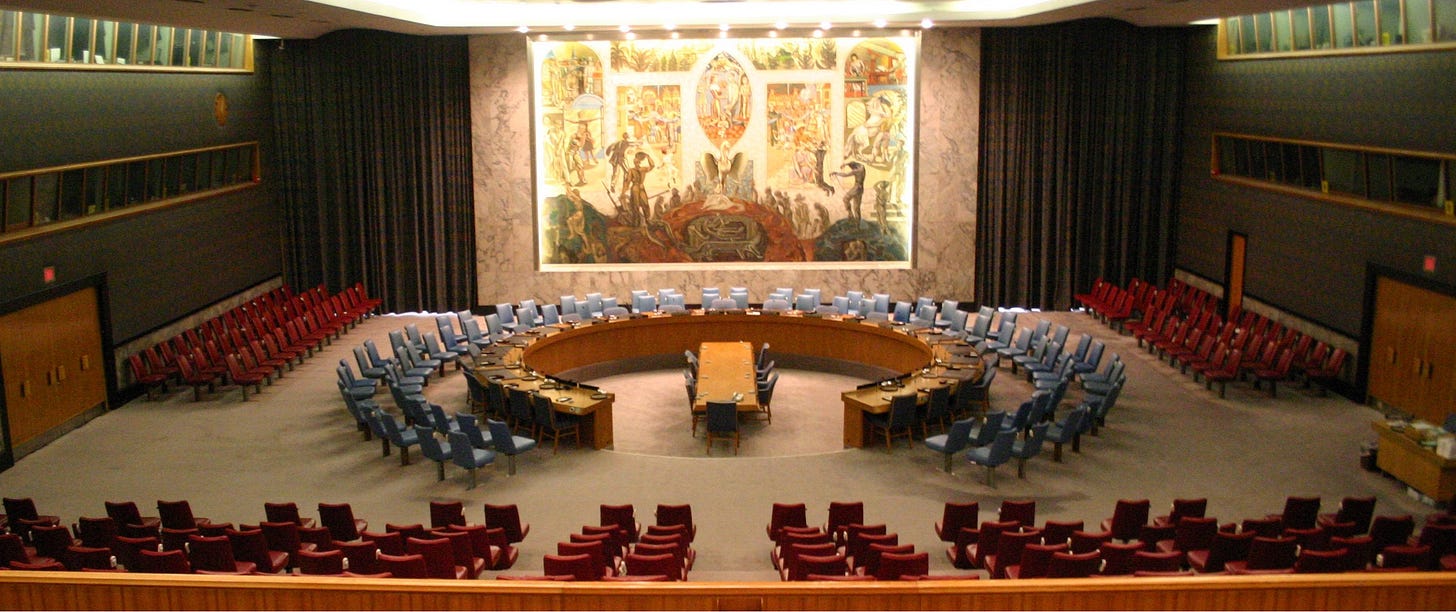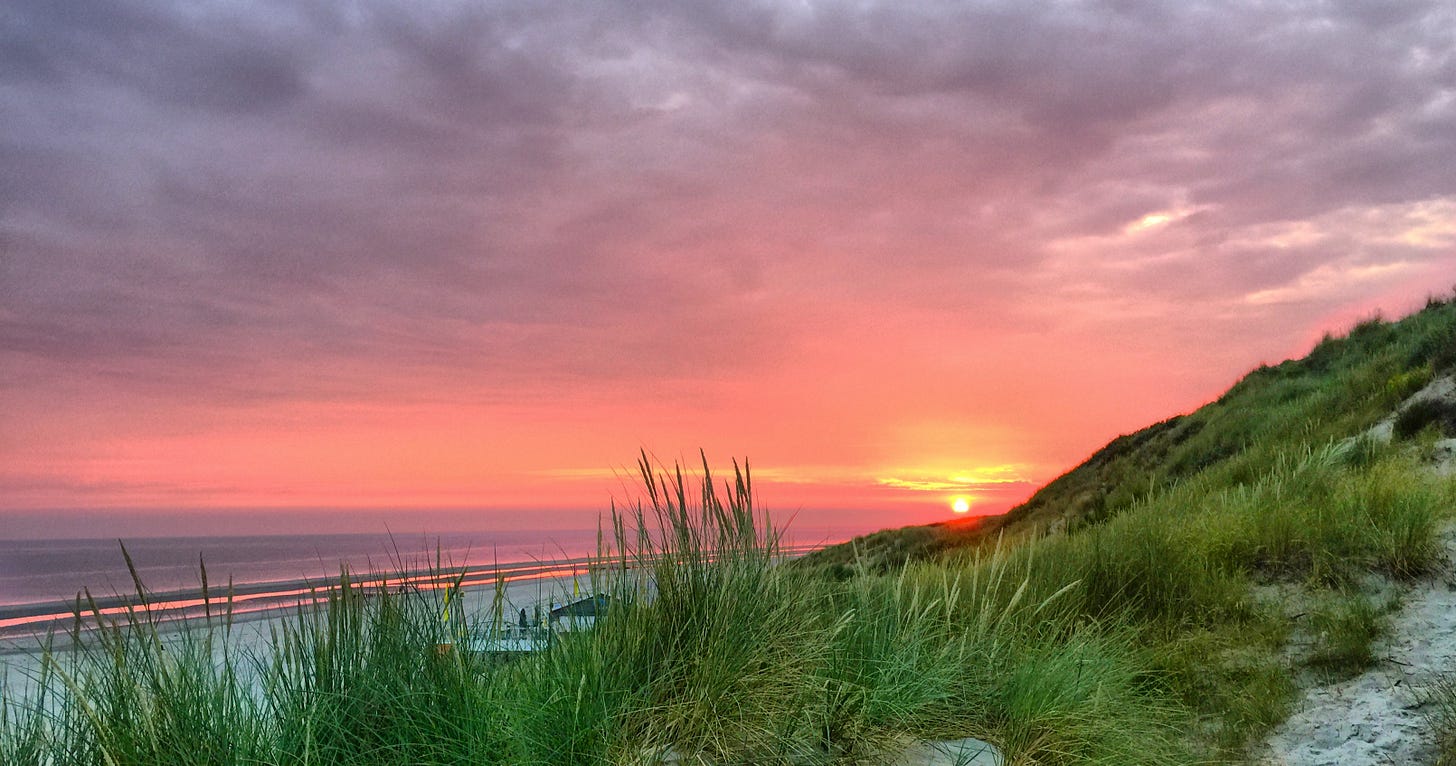The U.S. sees a vital role for the Security Council to tackle the negative impacts of climate on peace and security
Blinken addressed the U.N. Security Council on the impact of climate change on security.
On Thursday, Ireland's Taoiseach (Prime Minister) Micheál Martin chaired a high-level open debate in the Security Council on the "Maintenance of International Peace and Security: Climate and Security." Ireland organized the meeting because it sees increasing evidence that climate change is "a vector which increases the risk of violent conflict in many contexts." It, therefore, argues that climate change should be integral to the U.N.'s peacebuilding work.
U.S. Secretary of State Antony Blinken said in the Security Council that addressing the climate crisis has been a top priority for President Biden since day one. It is also a core element of U.S. foreign policy. Climate change is taken into account at every policy decision because of the devastating implications of climate change and the cascading effects on virtually every aspect of our lives, from agriculture to infrastructure, from public health to food security.
Speaking for the U.N. Security Council in New York City, Blinken referred to the dozens of people killed and the tens of billions of dollars in storm damage caused when a remnant of Hurricane Ida hit the city. More than three inches of rain fell in Central Park in a single hour, breaking a record set only a few weeks earlier.
Inequality and instability
Blinken noted two clear patterns in the impact of climate change: "The consequences are falling disproportionately on vulnerable and low-income populations. And they're worsening conditions and human suffering in places already afflicted by conflict, high levels of violence, instability".
These mounting impacts, and the continued warnings by climate scientists, underscore the urgent need to dramatically cut our emissions and build resilience. Accordingly, president Biden aims to double public international financing for developing countries most impacted by the climate crisis for a second time.
The vital role of the Security Council
The U.S. sees three ways in which the Security Council has a vital role to play.
We need agreement that the climate crisis belongs in the Security Council because it can leverage its unique powers to tackle the negative impacts of climate on peace and security. Such an agreement would also send a clear message to the international community of the severe implications that climate change has for our collective security.
The U.N. field missions should consistently incorporate the effects of climate change into their planning and implementation to advance mission activities; it will foster stability and build resilience.
The U.N. system should further integrate climate-related analysis into its conflict mediation and conflict prevention efforts, particularly in fragile states and areas of active conflict. The U.N. Department of Political and Peacebuilding Affairs' decision to include climate security in its Strategic Plan for the first time in 2020 and the Climate Security Mechanism are very positive examples of just this.
A global opportunity
Blinken warned for a too-narrow focus on only the threats posed by the climate crisis. A swift move to a net-zero world and bold actions to build resilience also presents an unprecedented opportunity to expand access to affordable, clean energy, build green infrastructure, and create good-paying jobs. All of these could spur long-term economic growth, reverse growing inequities within and between our nations, improve the lives of people around the world.
He ended by giving hope while recognizing the threats: "So even as we are clear-eyed about the threat, let's not lose sight of this once-in-a-generation global opportunity. Let's be driven not only by the fear of all the damage the climate crisis can inflict – and already has inflicted – but also by the imagination of all the ways our response can actually make people's lives better, now and into the future."
I believe it is good to see that the debate on climate and security has become more mainstream and is by now a regularly returning item on the agenda of the Security Council. But progress is slow. Fourteen years ago, the U.K. was the first country to put this issue on the UNSC agenda. Unfortunately, that debate was mainly about the question of whether the Security Council should address climate change. As Secretary of State Blinken hinted at with his first remark, some members are at best still only lukewarm for this idea. Like most climate policies, our leaders move too slow, and the climate crisis doesn't show any willingness to wait for the world's leaders to solve their differences first.
COP26 in Glasgow
The next stop is Glasgow, where in the first weeks of November, the world needs to strengthen its ambition and actions to save a rapidly overheating planet. I hope that the biggest countries in the world will overcome their differences and their leaders will take their responsibility.
I share Blinken's message of hope for the simple reason that I can't live without it. But I would not have included "long-term economic growth" in my vision of hope, at least not without defining what that means. Economic growth as we know it is what got us into this existential challenge. Perhaps it explains why I missed a reference to coal, oil, and gas in this speech; burning fossil fuels formed the foundation of the world's leading economies' prosperity since the Industrial Revolution. We know by now it came at a terrible environmental cost. I believe a better planet doesn't need more production, more use of energy, more consumption, or more pollution. We need better growth, not more.
A better world should be fairer, and that is where I agree with Blinken's hope for more equality within and between countries and improving the lives of people around the world. That sounds quite internationalist, positive, and progressive; it is the spirit that I hope many countries will bring to Glasgow.
Meanwhile, on the other side of the planet spoke another president
A colleague of President Biden, albeit leader of a smaller country, is the president of the Marshall Islands, David Kabua. He spoke to the U.N. General Assembly in a pre-recorded speech where he reminded leaders that "we simply have no higher ground to cede…The world simply cannot delay climate ambition any further".
In many Small Island Developing States, that is the reality: there is no time to lose; they are drowning. That is urgent, that is a security issue, and that is caused by the climate change that far richer countries have created to become even richer. So when rich countries drown poor countries, it is a security issue to be addressed by the Security Council.
I am still writing from my island, where someday in the future, difficult decisions will have to be made about whether to fight or flight. Climate change doesn't wait for anyone, but it doesn't strike everywhere at once. Lessons from history teach us that if you don't fight for others while you still can, there won't be any of the others left to fight for you when your time comes.
This newsletter is named The Planet because it is about our only home. It is a beautiful, small, isolated blue gem in a cold and empty universe. In this decade, we are frequently reminded of how fragile our living conditions are. The climate crisis, loss of nature, and pollution threaten to make life miserable for billions.
This newsletter warns about what's going on and promotes solutions to preserve our ecosystems.
But that is only half the story; this newsletter also reminds you of what's at stake. Never forget the beauty of this planet, from the Grand Canyon scale to the secret miniature world of ants; you will find all that in The Planet too.
I want to thank those of you that support this publication; I couldn't do this without you.
If you haven't yet subscribed, I hope you will. You can then start your day with these kinds of stories, comment on them, and access the entire archive. And your support is needed for this advertisement-free newsletter. If you can't afford the five dollars per month for an annual subscription, please stay and read for free. But if you can, please support this initiative.
Notes:
https://www.state.gov/secretary-antony-j-blinken-at-un-security-council-meeting-on-climate-and-security/
photos:
Security Council: Patrick Gruban, CC BY-SA 2.0 <https://creativecommons.org/licenses/by-sa/2.0>, via Wikimedia Commons
Island: By Alex DeCiccio - Own work, CC BY-SA 4.0, https://commons.wikimedia.org/w/index.php?curid=102471267 This image represents a dramatic and present visual of coastal erosion happening on the island of Nggatokae in the Western Province of the Solomon Islands.









Antony Blinken is a good decent man and I’m relieved to know that the climate crisis is real to him. The US lost much during the prior disastrous administration. Biden, Blinken and the rest of the administration have much work to do to catch up. As always, Alex, thank you for your voice and wise words.
Your recent newsletter was very informative and I'm glad you jumped on "long-term economic growth". My sentiments exactly. I'm sorry the island nations are stressed about their futures. But complaining to other nations is probably too late for them. I don't know but the speed of geologic scale that may have only begun and turning the ship around once we've hit the brakes may be decades or longer to recover these tropic wonderlands. So I wish them well.
Did that make sense? I'm not a great writer.